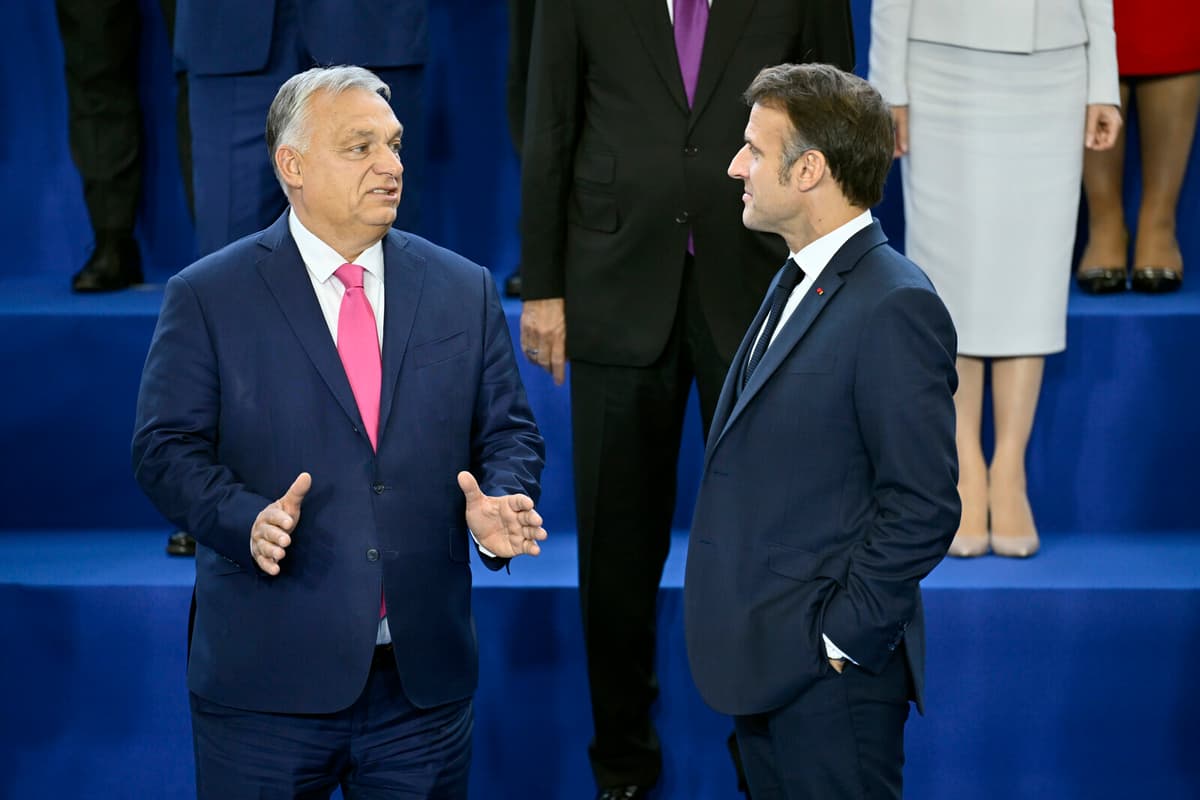The consequences of the presidential election in the USA dominate greatly when Europe's heads of state and government hold an EPC summit in Budapest.
The uncertainty is great about what Donald Trump's return as president will entail. Everyone seems to agree on the necessity of maintaining the "transatlantic alliance" – but also of showing strength.
The basic rule is that you should be tough in standing up for what you yourself think is right and proper. Then you must also have respect for other countries making their decisions, says Prime Minister Ulf Kristersson (The Moderate Party) to the Swedish press on site and continues:
But we must be careful to emphasize that historically, both the security cooperation and the economic cooperation between the USA and Europe have been incredibly successful for both parties.
"We can handle it"
Kristersson feels a "broad preparedness" for Europe to take greater responsibility for both its own security and for Ukraine.
In the long run, it would not have been realistic to believe that Americans and American taxpayers would be the primary military contributors to Ukraine's defense. That task will have to rest to a greater extent on Europe, and we can handle it too, says Kristersson, but adds that it is of course much better "if we have the USA with us in the future".
Several of the European leaders have already spoken with Trump, including France's President Emmanuel Macron, who, during the meeting, tries to instill courage in the Europeans by referring to their collective strength with over 700 million inhabitants.
Our role here in Europe is not to comment on the election of Donald Trump. He is American. He will defend American interests. That is precisely what he should do. But we must be ready to defend European interests, says Macron.
Advertisement
German crisis
For EU countries, a discussion about the USA has been planned for Thursday evening. An even deeper discussion is expected at the last EU summit in Brussels just before Christmas.
The question is only whether the ability to act will still be hampered by Germany's ongoing government crisis. Ulf Kristersson does not want to say that he is worried, but he hopes for a quick solution.
Countries have an easier time focusing on major joint tasks if they have stability in domestic politics, notes Kristersson.
Thursday's summit in Hungary is the fifth within the framework of the European Political Community, EPC, which is a loosely organized forum where all European countries participate, except Russia, Belarus, and the Vatican.
The participants gather both jointly and in smaller working groups – this time on the theme of migration and economic security.
EPC has no fixed organization and only holds summit meetings for the countries' heads of state and government once every six months. Previous meetings have been held in the Czech Republic (October 2022), Moldova (June 2023), Spain (October 2023), and the United Kingdom (July 2024). The next meeting will be held in Albania in the spring of 2025.






